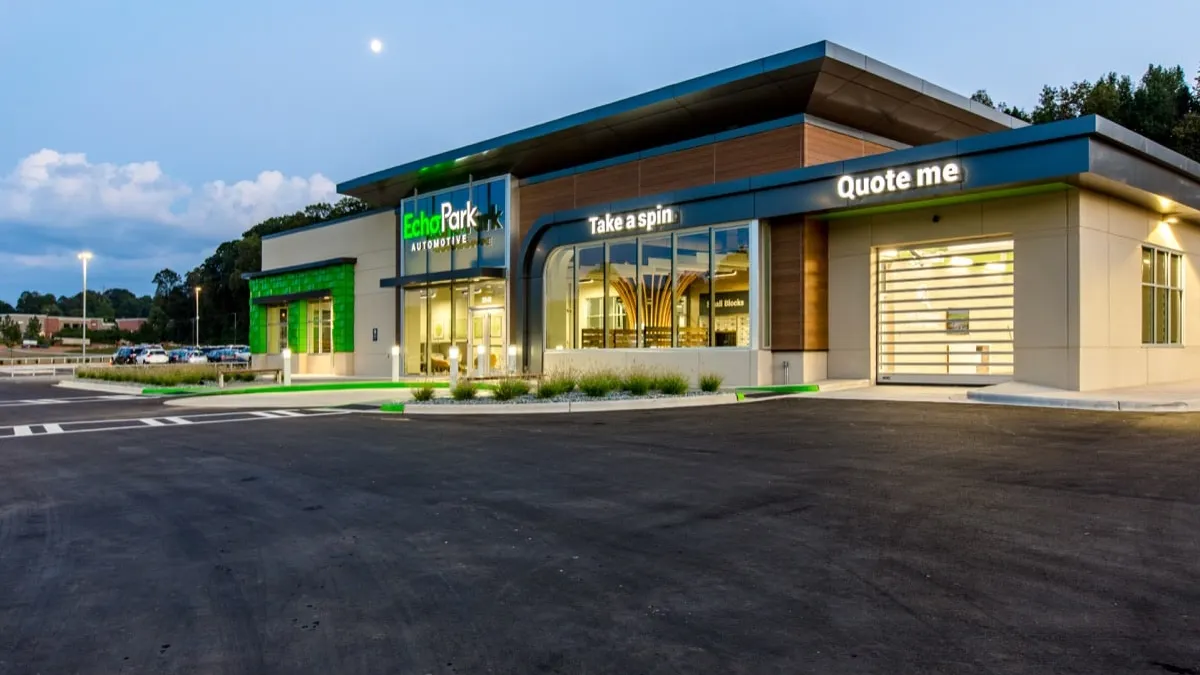Editor's note: This story is part of the WardsAuto digital archive, which may include content that was first published in print, or in different web layouts.
Based on recent events, automotive recalls seem likely to join death and taxes as one of life’s inevitabilities.
Through July of this year, 43 million vehicles in the U.S. have been the subject of 387 recalls, according to the National Highway Traffic Safety Admin. This compares with 27 million in 2013 and 18 million in 2009.
These include everything from motorcycles to transit buses. But cars, SUVs, and light trucks have the greatest impact in terms of the sheer number of vehicles passing through dealer service departments.
To date, the General Motors ignition switch recall has identified 26 million vehicles from model years 1997 to 2011 that must be repaired.
Over seven million U.S. vehicles are affected by the recall of airbags made by supplier Takata. These units contain inflators that can rupture, sending pieces of metal flying into the passenger compartment.
Recalls cost automakers billions of dollars and have cost some top auto executives their jobs. At the same time, a flood of recalls and less-than-ideal communications with the factory can overwhelm dealers.
“Depending on the manufacturer, it’s very difficult to keep up with the various recalls,” says Ken Coker, owner of Coker Automotive Consultants in Norman, OK. “It’s a lot of red tape and it’s confusing because there are so many of them. It’s not uncommon for recalls to be announced in the press before dealers have any concrete information. It’s very problematic.”
However, if dealers approach a recall as an opportunity and plan accordingly, they can find a silver (or green) lining from increased revenue and a chance to put their best foot forward with customers.
“From the dealer’s perspective, it’s an opportunity,” says Neil Steinkamp, managing director-Dispute Advisory & Forensic Services at financial firm Stout Risius Ross in New York.
“If you have a consumer with an issue and you’re able to comfort them through the process, you accomplish a couple of things. You can reassure them of the quality of the brand and hopefully lead to a future (vehicle) sale. It also helps to build a relationship between the dealer and the consumer.”
Getting Good at Recall Work
Service managers and dealer principals welcome recalls because they bring more revenue and profit, says Paul Vollrath, a parts and service consultant and former service director for dealer groups in Pennsylvania and Florida.
“They’re getting their regular warranty labor rate, which can range anywhere from $70 to $110 an hour. Technicians aren’t crazy about them because the flat-rate labor time is a little bit less, but if it’s a large recall like Toyota had with its heated seats, they can get real good at it, find shortcuts, and actually make time on them.”
As general manager at McGeorge Toyota in Richmond, VA, Bob Farlow has experienced his share of campaigns, including Toyota’s 2009-2010 unintended-acceleration issue that resulted in the voluntary recall of 4.2 million vehicles.
Today, Farlow’s store is on track to sell 2,900 new and 1,250 used vehicles in 2014, both representing an 8% increase over 2013 results. October unit sales were up 30% year-on-year. McGeorge services about 4,000 vehicles a month.
Farlow’s first reaction when notified of a recall is “here’s a great opportunity to wow a customer with the level of our service,” he says. “If the customer is very concerned about a recall, we’ll put them in a loaner that very moment until their car is repaired. The vast majority of customers we see are very accepting and appreciative of the manufacturer identifying a potential problem with their vehicle.”
He says Toyota provides information about recalls as far in advance as possible so dealers can prepare to answer customer questions and order parts.
Recall work essentially is warranty work.
About half of the states have laws that specifically require manufacturers to pay dealers for recall work at the retail rate, according to the National Automobile Dealers Assn. Others require dealer compensation, but it is not necessarily defined in the law.
“Any type of recall is great for business. Any time you have people coming in without having to advertise, it’s a good thing,” says Greg Bart, parts and service director at McGrath Audi in Glenview, IL.
McGrath will soon occupy a new, 70,000-sq.-ft. (6,503-sq.-m) facility that features an indoor pre-owned 24-car showroom and 23 service stalls.
“For recalls on older cars, we know there will be a lot of people coming in that haven’t been here for a while,” Bart says. “If we see an older vehicle with the potential for upsells, we try not to push it that day. People really appreciate not getting the hard sell. They might come back the next day anyway.”
Although no manufacturer wants a dealer to mine for warranty work, “we look out for appropriate opportunities,” Bart says.
He expects customers will show understanding when they respond to the recent airbag recall on certain Audi models. Because the issue is software related, waiting for parts should be a non-issue.
Parts Availability Can Pose Problems
Parts availability can indeed pose a problem if the OEM and its supply chain are caught off guard. But automakers say they are taking steps to minimize that possibility.
“We’ve released a number of recalls this year and we’ve got roughly 26 million vehicles in North America that are coming into dealers, so obviously this has a major impact on their operations,” says Tim Turvey, GM’s North American vice president-Customer Care and Aftersales.
“It was overwhelming initially for the dealers and parts availability was the No.1 issue,” he says. “We’ve taken unprecedented action in the case of all our recalls to procure the parts, get additional tooling that’s required, and do whatever is needed to fix the vehicles.”
GM says it is also stepping up communications with dealers so they have recall information in advance or at least at the same time the company or NHTSA makes a public announcement.
“We’ve developed parts-estimating tools that tell when parts will be available so dealers can respond to customers,” Turvey says. “That helps eliminate a lot of the noise around these recalls for the dealer.”
He says all of the parts needed for GM’s ignition switch campaign have been produced and delivered to parts distribution centers and dealers. “There’s zero issue on parts availability for probably 98 % of our recalls out there today,” he says.
Once the parts are on the shelves and customers have received recall notices, dealers must formulate a plan to get the work done quickly and efficiently.
“The biggest issue is preparing our capacity, making sure our shops are able to handle the increase, and getting our staff trained and efficient at getting customers in and out,” says Colin Wickstrom, owner of the Wickstrom Auto Group in Barrington, IL. He’s also chairman of the Chicago Automobile Trade Assn. and co-chairman of the 2015 Chicago Auto Show.
“For a large recall we make one service advisor the champion,” he says. “We channel all issues related to that recall through that person who assesses each customer’s needs. We create teams of technicians to study workflow and inventory and come up with best practices.”
His dealer group’s designated recall point-person also handles communications with the factory.
For a recent Ford Escape recall that involved only a software update, Wickstrom service director Brian Cook oversaw fixes on all in-stock units first. Express lane employees did that work.
“That’s all they did all day long, and we took care of 40 to 60 vehicles in one week,” he says.
For another, more complicated, recall program, Cook reallocated technicians from the used-car department.
“When they do the job over and over they become very efficient,” he says. “We could do two and a half cars in one day, whereas an inexperienced technician could only do one per day. By having a dedicated tech, the rest of the shop can operate normally. It’s a win-win.”
Cook says recalls have comprised about 30% of the total service work at Wickstrom Chrysler-Dodge-Jeep and 10% at Wickstrom Ford. “We’re pretty caught up,” he says. “Profitability is pretty good, pretty close to customer pay.”
A recall is only as successful as the number of vehicles that get fixed. According to NHTSA, the average completion rate is 75% of passenger vehicles. With a completion rate of only 55% on its ignition switch recall, Turvey says GM is using more innovative ways to reach owners and get them to bring in their vehicles.
“We’ve taken analytics from the vehicle sales side (and) other pieces of our business and apply that to these recalls so we can segment the customers,” he says.
Customer types are put in five demographic buckets: families with children, younger drivers, empty nesters, older drivers and business owners
“We’re able to understand how to best communicate with them, what they look at on the web, and if we can we engage them on Facebook,” Turvey says.
In November, GM began offering $25 gift cards redeemable at Amazon.com, Bass Pro Shops and other retailers if owners of vehicles affected by the ignition-switch recall have their repairs made by December 1. The promotion is available to more than 700,000 people.
“We’re trying some things that have never been done before to get those customers in and get the completion rate up,” Turvey says. “We’d love to have 100%, but it’s tough to do.
“We think what ultimately needs to happen is to have legislation that says a vehicle cannot be registered unless all outstanding recalls have been completed within a sufficient period of time.”

















